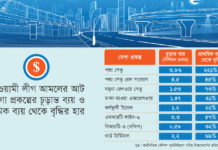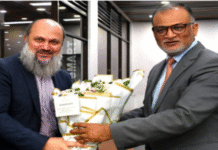
Amnesty International on Tuesday said that failure to bring the killers to justice has resulted in the frequency of murders to increase which has created a climate of impunity in Bangladesh.
“The brazen announcement by violent groups that they will continue targeting those they perceive as ‘insulting Islam’ should shake the Bangladeshi authorities out of their complacency,” said Champa Patel, Amnesty International’s Regional Director for South Asia, in a statement.
The Amnesty official said ignoring the problem is not a solution.
“The authorities must categorically condemn these killings, carry out a prompt, thorough, impartial and transparent investigation, deliver justice for the victims, hold the perpetrators accountable, and protect those still under threat,” Champa said.
On Sunday, a 65-year old Christian man named Sunil Gomes, from the village of Bonpara, was the tenth person to be hacked to death in Bangladesh in the last two months.
He was attacked at his grocery shop near a church shortly after Sunday services.
The militant group calling itself the Islamic State (IS) has claimed responsibility for the attack, stating on a website that it was “part of a series of operations” it is intent on carrying out in Bangladesh.
A day earlier, on Saturday, Mahmuda Akter, the wife of Babul Akter, a senior anti-terrorism official of the police force was killed in the city of Chittagong in similar way.
The Bangladeshi home minister, Asaduzzaman Khan Kamal, has said he suspects the murder was related to the anti-terrorism official’s work investigating earlier killings.
Since April, Amnesty International has recorded the killings of secular bloggers, LGBTI activists, a university professor, a doctor and members of minority religious communities.
“The Bangladeshi government has often claimed to be a bulwark against intolerance, but their actions indicate otherwise,” said Champa Patel.
“Instead of devoting their energies to ending this wave of killings, it has spurned calls for protection and even sought to blame the victims for the threats they face. This is in contravention of the government’s international obligations to protect and promote the right to freedom of expression and religion.”
The Amnesty also commented on the 14 April 2016 murder of Xulhaz Mannan, the editor of Roopban, Bangladesh’s only LGBTI publication.
“No person should be discriminated against on the basis of their sexuality or religion. Only by protecting these and other human rights can the Bangladeshi authorities ever claim to be champions of tolerance,” Champa Patel said in her statement.
Source: Ittefaq









